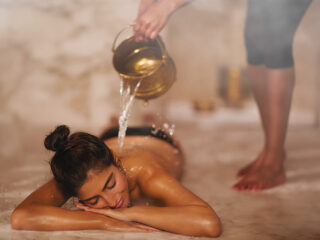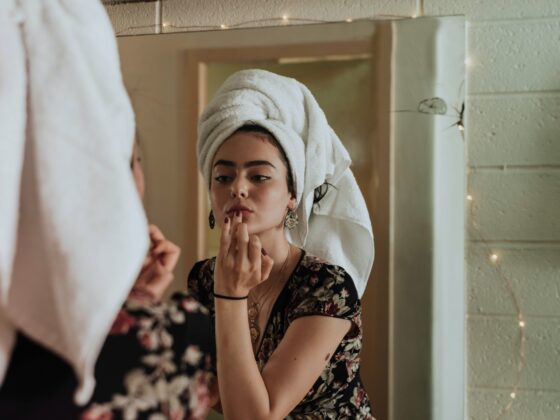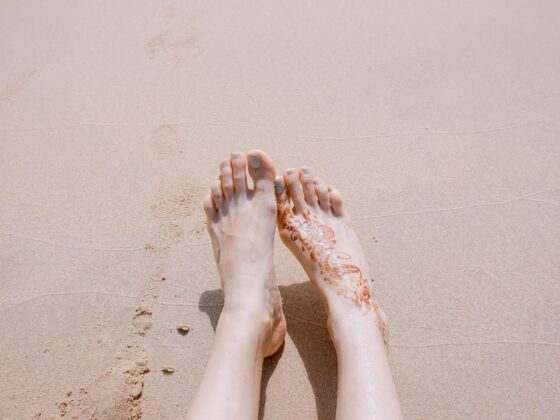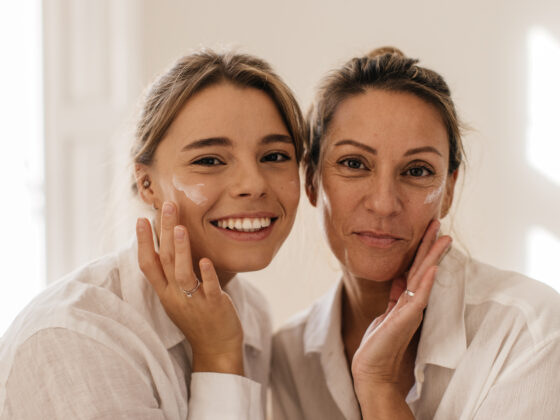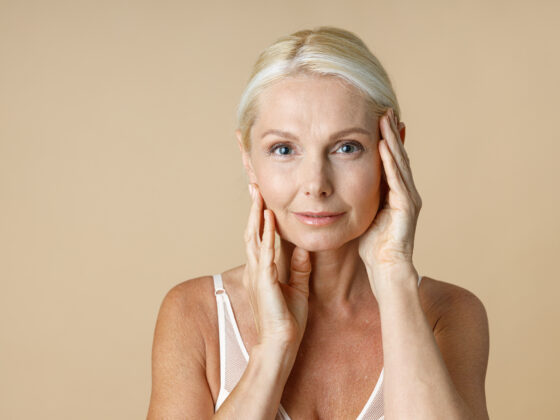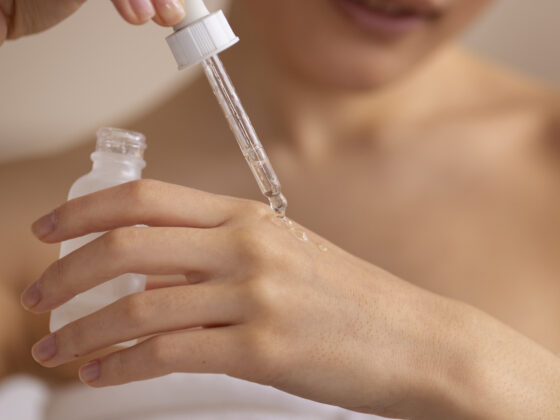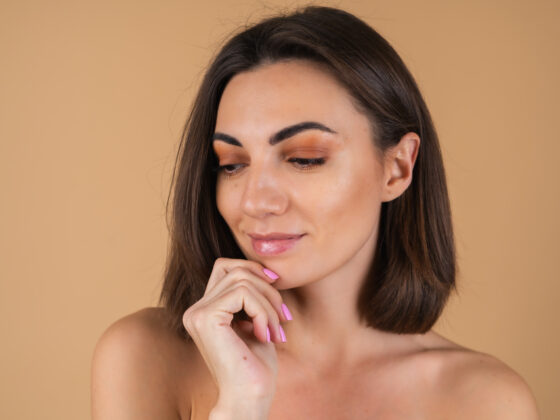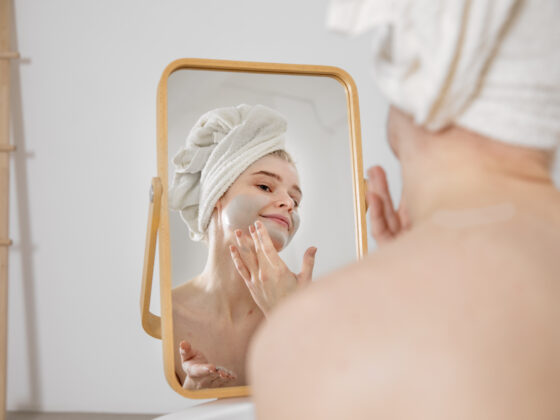Summer is the season of fun, adventure, and relaxation. But it can also be the season of sunburns, breakouts, and premature aging if you don’t take care of your skin properly. The sun’s ultraviolet (UV) rays can damage your skin in various ways, from causing inflammation and dehydration to triggering pigmentation and collagen breakdown. That’s why you need to follow some essential summer skincare tips and practices to protect your skin from the sun and keep it glowing.
In this guide, you’ll learn how to understand the impact of sun on skin, how to choose the right sun protection products, how to adjust your skincare routine for summer, and how to nourish your skin from within. By following these summer skincare tips, you’ll be able to enjoy the summer months without compromising your skin health and beauty.
Navigate Your Way
The ABC’s Of Ultraviolet Radiation: the Impact of Sun on Skin
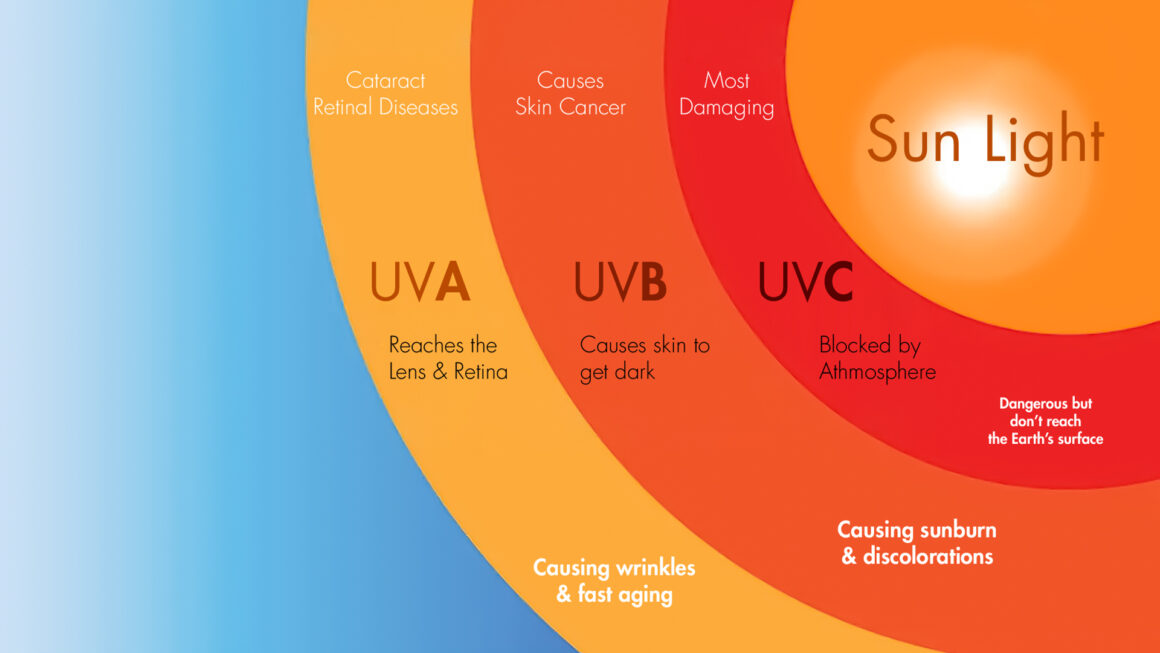
The sun emits two types of UV rays that can harm your skin: UVA and UVB. UVA rays penetrate deeper into the skin and cause long-term damage such as wrinkles, sagging, and dark spots. UVB rays affect the surface of the skin and cause short-term damage such as sunburns, redness, and inflammation.
Both types of UV rays can also increase your risk of developing skin cancer, which is the most common type of cancer in the US. According to the American Academy of Dermatology (AAD), one in five Americans will develop some form of skin cancer in their lifetime.
The good news is that you can prevent most of the sun damage by using proper sun protection practices.
Here are some essential summer skincare tips to help you shield your skin from the sun.
6 Essential Summer Skincare Tips

Keeping your skin healthy in the summer requires a few key skincare practices that can make a big difference in how your skin looks and feels.
Sunscreen Is A Must

The most important summer skincare tip is to always apply a broad-spectrum sunscreen with an SPF of at least 30. Broad-spectrum means that it protects against both UVA and UVB rays. SPF stands for sun protection factor and indicates how long you can stay in the sun without getting burned.
You should apply sunscreen at least 15 minutes before going outside and reapply every two hours or immediately after swimming or sweating. You should also use enough sunscreen to cover all exposed areas of your skin. A general rule of thumb is to use about half a teaspoon for your face and neck and a full teaspoon per limb.
Some sunscreens that we recommend are:
- La Roche-Posay Anthelios Melt-In Sunscreen Milk SPF 60: This sunscreen offers broad-spectrum protection and is water-resistant, making it perfect for beach days.
- EltaMD UV Clear Broad-Spectrum SPF 46: This sunscreen is ideal for acne-prone or sensitive skin as it contains niacinamide, a vitamin B3 derivative that helps reduce inflammation and redness.
- Supergoop! Unseen Sunscreen SPF 40: This sunscreen is invisible on the skin and has a velvety texture that works well under makeup.
Seek Shade
Another summer skincare tip is to avoid direct sunlight when the sun is at its peak, usually between 10 a.m. and 4 p.m. During these hours, the UV rays are the strongest and can cause more damage to your skin. Try to stay in the shade as much as possible or use an umbrella or a hat to cover yourself.
Wear Protective Clothing
In addition to sunscreen, you should also wear protective clothing that can block some of the UV rays from reaching your skin. Opt for long-sleeved shirts, pants, and a wide-brimmed hat that can cover your face, neck, ears, and scalp. You can also look for clothes that have a UPF (ultraviolet protection factor) rating of 50 or higher, which means they block 98% of UV rays.
Stay Hydrated
One of the effects of sun exposure is dehydration, which can make your skin dry, dull, and flaky. To prevent this, you should drink plenty of water throughout the day to keep your skin hydrated from the inside out. You can also eat foods that have high water content such as cucumbers, watermelons, strawberries, and tomatoes.
Opt for Antioxidant-Rich Skincare
Another way to protect your skin from the sun is to use skincare products that contain antioxidants. Antioxidants are substances that neutralize free radicals, which are unstable molecules that are produced by sun exposure and can damage your skin cells. Antioxidants can help prevent and repair some of the sun damage and also boost your skin’s natural defense system.
Some of the most potent antioxidants for skincare are vitamin C, vitamin E, niacinamide, and green tea. You can find them in various skincare products such as serums, creams, and masks. Some products that we recommend are:
- SkinCeuticals C E Ferulic: This is a cult favorite for its potent blend of antioxidants, offering added protection against environmental damage.
- The Ordinary Niacinamide 10% + Zinc 1%: This is a budget-friendly serum that helps reduce inflammation, oiliness, and pores.
- Neogen Dermalogy Real Fresh Green Tea Cleansing Stick: This is a gentle cleanser that contains green tea leaves and extracts that help soothe and refresh the skin.
Exfoliate For Healthy Skin
Another summer skincare tip is to exfoliate your skin regularly to remove the dead skin cells, dirt, and oil that can clog your pores and make your skin look dull.
Exfoliating can also help improve the absorption and effectiveness of your other skincare products.
However, you should be careful not to over-exfoliate or use harsh scrubs that can irritate your skin and make it more sensitive to the sun. You should also avoid exfoliating right before or after sun exposure as this can increase your risk of sunburns. A good rule of thumb is to exfoliate once or twice a week in the evening and use a gentle product that suits your skin type.
Some exfoliating products that we recommend are:
- Paula’s Choice Skin Perfecting 2% BHA Liquid Exfoliant: This is a liquid exfoliant that contains salicylic acid, a beta-hydroxy acid (BHA) that helps unclog pores and reduce acne.
- Drunk Elephant T.L.C. Framboos Glycolic Night Serum: This is a night serum that contains glycolic acid, a alpha-hydroxy acid (AHA) that helps smooth and brighten the skin.
- Dermalogica Daily Microfoliant: This is a powder exfoliant that contains rice enzymes and salicylic acid that help gently polish and refine the skin.
Adjust Your Skincare Routine for Summer
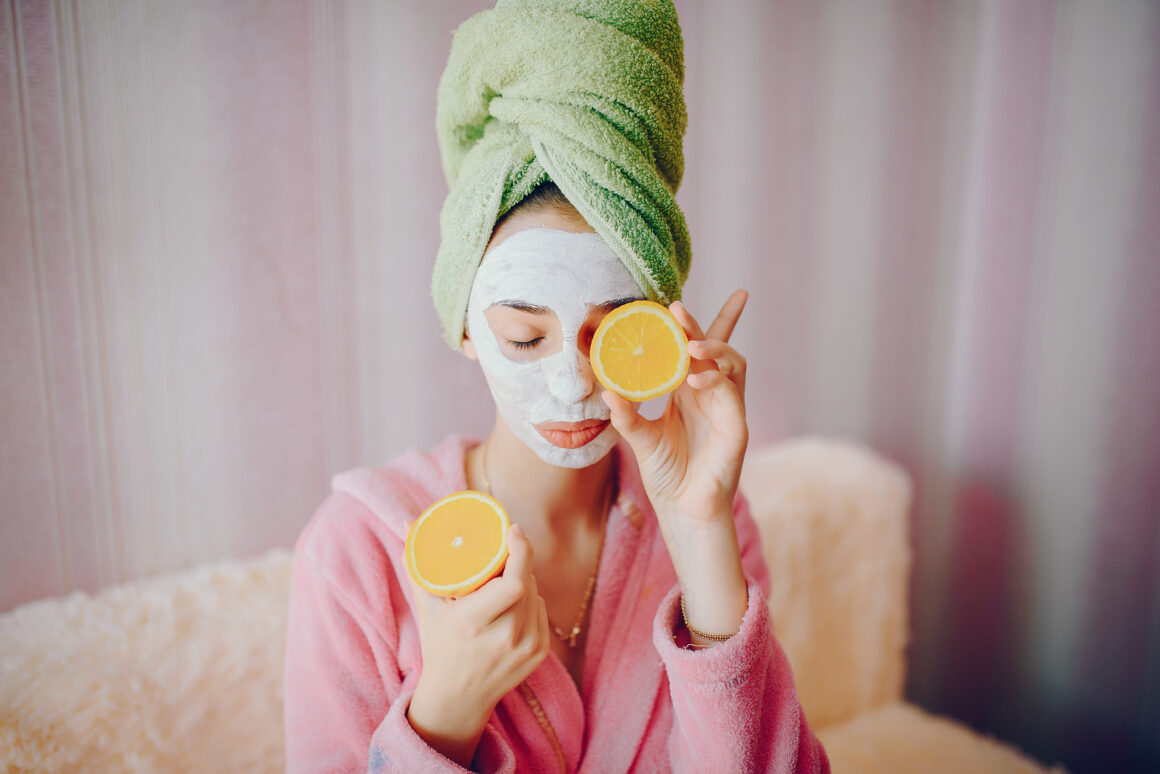
In addition to following these summer skincare tips, you may also need to adjust your skincare routine for summer to suit the changing weather and your skin’s needs. Here are some suggestions on how to tweak your skincare routine for summer.
Lighten Up Your Moisturizer
In the summer, your skin may produce more oil and sweat, which can make it feel greasy and sticky. To avoid this, you may want to switch to a lighter moisturizer that can hydrate your skin without making it feel heavy or clogged. Look for moisturizers that have a gel, lotion, or fluid texture and that are oil-free or non-comedogenic (meaning they won’t clog pores).
Some moisturizers that we recommend are:
- Neutrogena Hydro Boost Water Gel: This is a gel moisturizer that contains hyaluronic acid, a humectant that attracts and retains moisture in the skin.
- CeraVe PM Facial Moisturizing Lotion: This is a lotion moisturizer that contains ceramides, niacinamide, and hyaluronic acid, which help strengthen the skin barrier and calm the skin.
- La Roche-Posay Toleriane Fluide Oil-Free Moisturizer: This is a fluid moisturizer that contains thermal spring water, glycerin, and squalane, which help soothe and nourish the skin.
Use A Good Toner
Another step that you may want to add to your skincare routine for summer is using a toner. A toner is a liquid product that you apply after cleansing and before moisturizing. It can help balance your skin’s pH level, remove any traces of dirt or makeup, and prepare your skin for the next steps.
A toner can also help refresh your skin during hot summer days. You can keep it in the fridge for a cooling effect or spray it on your face throughout the day for a hydration boost.
Some toners that we recommend are:
- Thayers Witch Hazel Alcohol-Free Toner: This is an alcohol-free toner that contains witch hazel, a natural astringent that helps tighten pores and reduce inflammation.
- Klairs Supple Preparation Facial Toner: This is a hydrating toner that contains centella asiatica, licorice root, and aloe vera extracts, which help calm and repair the skin.
- Mario Badescu Facial Spray With Aloe, Herbs and Rosewater: This is a facial spray that contains rosewater, aloe vera, and herbs, which help hydrate and soothe sun-exposed skin
- Pixi Glow Tonic: This is an exfoliating toner that contains glycolic acid, aloe vera, and ginseng, which help smooth and brighten the skin.
Avoid Heavy Makeup
Another summer skincare tip is to avoid wearing heavy makeup that can clog your pores and make your skin look cakey. Instead, opt for lighter and more natural makeup that can enhance your summer glow. Look for makeup products that are oil-free, water-resistant, and have SPF.
Some makeup products that we recommend are:
- IT Cosmetics Your Skin But Better CC+ Cream with SPF 50+: This is a CC cream that offers full coverage, SPF 50+, and skincare benefits such as anti-aging peptides, hyaluronic acid, and collagen.
- Maybelline Fit Me Matte + Poreless Liquid Foundation: This is a liquid foundation that offers medium coverage, a matte finish, and pore-minimizing effects.
- Glossier Cloud Paint: This is a gel-cream blush that gives a natural flush of color to the cheeks.
Nourish Your Skin From Within

Finally, one of the best summer skincare tips is to nourish your skin from within by eating a healthy and balanced diet. What you eat can affect how your skin looks and feels, so you should choose foods that can benefit your skin and avoid foods that can harm it.
Some of the foods that can help your skin are:
- Fruits and vegetables: These are rich in antioxidants, vitamins, minerals, and water, which can help protect your skin from sun damage, hydrate your skin, and boost your skin’s health and appearance. Some of the best fruits and vegetables for your skin are berries, citrus fruits, leafy greens, carrots, and tomatoes.
- Healthy fats: These are essential for maintaining your skin’s moisture level, elasticity, and barrier function. They can also help reduce inflammation and promote wound healing. Some of the best sources of healthy fats are avocados, nuts, seeds, olive oil, and fatty fish.
- Protein: This is the building block of your skin’s structure, as it helps produce collagen and elastin, which keep your skin firm and smooth. It also helps repair your skin’s damage and support your immune system. Some of the best sources of protein are eggs, lean meat, poultry, fish, dairy products, beans, and lentils.
Some of the foods that can harm your skin are:
- Sugar: This can cause inflammation in your body and trigger glycation, a process that damages collagen and elastin fibers in your skin. This can lead to wrinkles, sagging, and dullness. Sugar can also worsen acne by increasing oil production and bacterial growth.
- Processed foods: These are often high in salt, sugar, preservatives, and artificial ingredients that can dehydrate your skin, cause inflammation, and disrupt your skin’s balance. Processed foods can also lack nutrients that your skin needs to function properly.
- Alcohol: This can dehydrate your skin, dilate your blood vessels, and cause oxidative stress in your body. This can result in dryness, redness, puffiness, and premature aging. Alcohol can also interfere with your sleep quality, which can affect your skin’s repair and regeneration.
How to Recover and Heal the Skin After Sun Damage
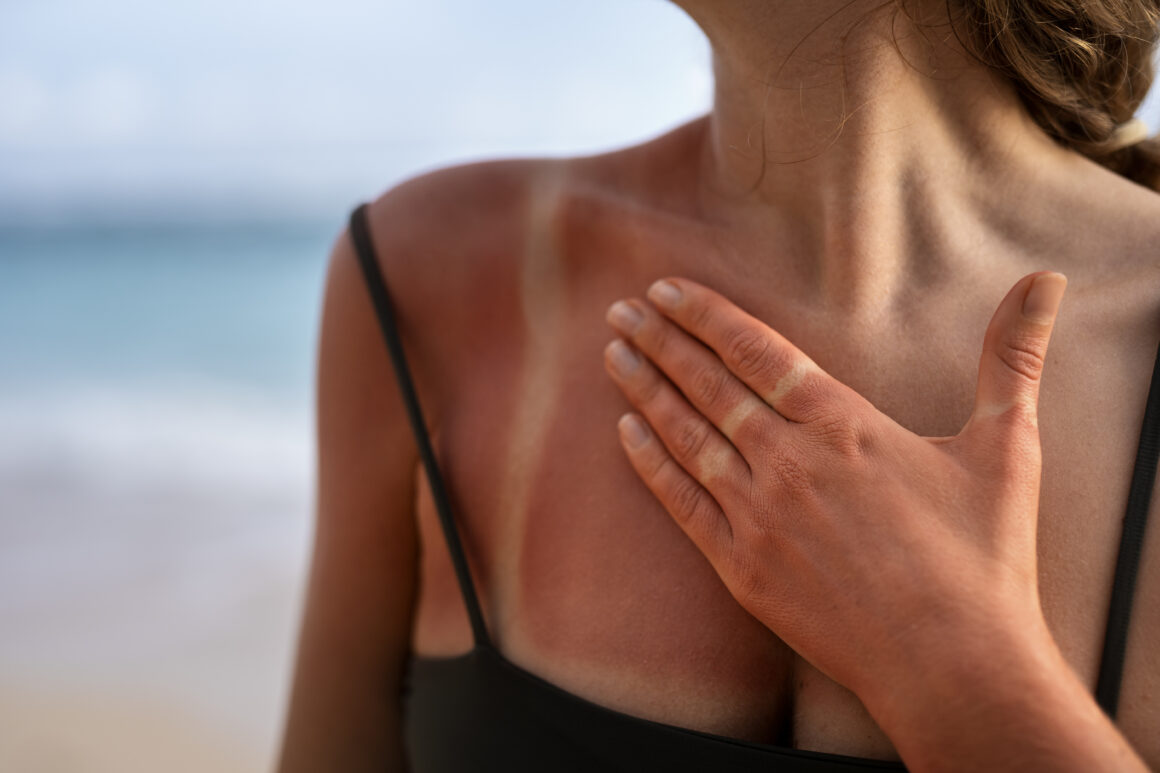
Even if you follow these summer skincare tips and practices, you may still experience some sun damage from time to time. Maybe you forgot to reapply your sunscreen, or you stayed out in the sun longer than you planned. Whatever the reason, sun damage can cause discomfort, irritation, and inflammation to your skin.
Fortunately, there are some ways to recover and heal your skin after sun damage and prevent further complications. Here are some tips on how to treat your skin after sun exposure:
- Cool down your skin: As soon as you notice any signs of sunburn, such as redness, pain, or blisters, you should cool down your skin to reduce the heat and inflammation. You can do this by taking a cool shower or bath, applying a cold compress, or spraying a soothing mist like Thermal Water on your skin.
- Moisturize your skin: Sunburn can dehydrate your skin and make it peel or flake. To prevent this, you should moisturize your skin with a gentle lotion or cream that contains hydrating ingredients such as aloe vera, glycerin, or hyaluronic acid. You can also use products that contain anti-inflammatory ingredients such as oatmeal, chamomile, or green tea. Avoid products that contain alcohol, fragrance, or retinoids as they can irritate your skin.
- Treat the pain and inflammation: Sunburn can cause pain and swelling that can last for days. To relieve these symptoms, you can take over-the-counter painkillers such as ibuprofen or aspirin. You can also apply topical corticosteroids such as hydrocortisone cream to reduce the inflammation. However, you should not use these products on broken or infected skin or for more than a few days without consulting your doctor.
- Protect your skin from further damage: While your skin is healing from sun damage, you should avoid any further exposure to the sun or other sources of heat. You should also wear loose-fitting clothes that cover your skin and avoid scratching or picking at your skin. If you have blisters, do not pop them as they can get infected. If you have signs of infection such as pus, fever, or chills, see your doctor right away.
- Seek professional help: If you have severe sun damage that affects a large area of your skin or causes symptoms such as nausea, headache, dizziness, or confusion, you should seek medical attention immediately. You may have sun poisoning, which is a serious condition that requires treatment. You may also want to see a dermatologist if you have persistent or recurring signs of sun damage such as dark spots, wrinkles, or actinic keratoses (pre-cancerous growths). A dermatologist can offer various treatments to help reverse some of the sun damage and improve your skin’s appearance and health. Some of these treatments include:
- Chemical peels: These are procedures that use acids to remove the top layer of damaged skin and reveal new and smoother skin underneath.
- Laser resurfacing: These are procedures that use lasers to vaporize the damaged skin cells and stimulate the production of new collagen and elastin fibers.
- Intense-pulsed light (IPL): These are procedures that use pulses of light to target and destroy the pigment cells that cause dark spots.
- Injectable fillers: These are substances that are injected into the skin to fill in wrinkles and restore volume and plumpness.
- Cryosurgery: This is a procedure that uses liquid nitrogen to freeze and destroy actinic keratoses or other abnormal growths on the skin.
By following these summer skincare tips and practices, you can protect your skin from the sun and keep it glowing throughout the season. Remember, the key to healthy and radiant skin is consistent care. So make these skincare practices a part of your everyday routine and enjoy a beautiful summer glow!

